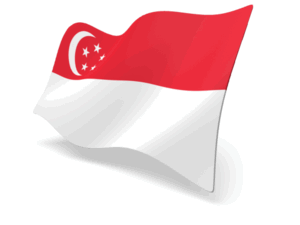Get Expert Advice to Study in Singapore
Study in Singapore
Capital
Singapore
Population
6.04 million
Language
English, Singaporean,
Tamil, Malay
Currency
GBP (~ INR 104)
Major Cities
London, Manchester, Dublin, Ediburgh, Glasgow, Cardiff
Top Universities
Cambridge, Oxford, LSE
No. of International Students
6,79,970
Best Country to Study Abroad Ranking
1
Why Study in Singapore?
In the pursuit of higher education, Singapore has emerged as a beacon for Indian students, offering a compelling blend of academic excellence, global connectivity, and a multicultural environment. Renowned institutions like the National University of Singapore (NUS) and Nanyang Technological University (NTU) consistently rank among the world’s top universities, providing students with an education that is not only internationally recognized but also focuses on innovation and research. The use of English as the primary medium of instruction eliminates language barriers, enhancing the accessibility and comfort for Indian students as they immerse themselves in a diverse and dynamic educational landscape.

Singapore’s strategic geographical location serves as a gateway to global opportunities, enabling students to explore internships, collaborations, and cultural exchanges with ease. The city-state’s strong economy and emphasis on technology make it particularly appealing for students pursuing fields like engineering, information technology, and business. Moreover, Singapore’s commitment to quality of life, safety, and efficient public services ensures a conducive environment for academic and personal growth. As Indian students increasingly seek a globalized education that prepares them for a competitive and interconnected world, Singapore stands out as a destination that not only meets but exceeds these expectations, providing a transformative educational experience that extends far beyond the classroom.
Popular Courses to Study in Singapore
Here are some traditionally popular courses in the UK:

Business & Management

Engineering & Technology

Computer Science & Information Technology

Biomedical Medicine & Healthcare

Finance & Accounting

Logistics & Supply Chain Management

Social Sciences & International Relations
Documents Required by International Students for Admission
- Academic Transcripts and Certificates
- English Language Proficiency Test Scores - IELTS, TOEFL, or other equivalents
- Passport Copy
- Letter of Recommendation (LOR)
- Statement of Purpose (SOP)
- Portfolio (for Art and Design Courses)
- Proof of Financial Ability
- Medical Reports and Insurance
- Equivalency Certificates (if applicable)
Intakes for Study in Singapore
Intake 1:
August
Intake 2
February
Application Procedure for International students
Here's a general guide to help you through the application process:
Research for Course & Institution
Receive an Offer of Admission
Pay Acceptance Fee & Tuition Fee
Register with the Student's Pass Online Application & Registration System (SOLAR)
Prepare Required Documents: Passport, Passport Photo, Application Form (Form 16), Proof of financial means (e.g., bank statements, scholarship letters)
Submit the Online Application
Pay the Visa Application Fee
Health Insurance
Schedule & Attend the Medical Examination
Wait for the Approval
Collect the Student Pass
Get Tickets Done
Arrive for your Orientation
In Pursuit of the Best Study Abroad Options
Expert advice, quick admissions and hassle free student visa for the top ranked universities from the study abroad specialists.
Cost of Education
On average, undergraduate programs in Singapore can range from SGD 25,000 to SGD 45,000 (INR 15,50,000 – 27,90,000) per year, while postgraduate programs may cost between SGD 25,000 and SGD 50,000 (INR 15,50,000 – 31,00,000) per year.
Living Cost
Accommodation:
SGD 300 to SGD 1,500 (INR 18,600 – 93,000) per month
Food and Groceries:
SGD 200 to SGD 400 (INR 12,400 – 24,800) per month
Transportation:
Monthly Pass: SGD 80 to SGD 120 (INR 4,960 – 7,440) per month
Utilities (Electricity, Heating, Internet):
SGD 100 to SGD 200 (INR 6,200 – 12,400) per month
Books and Supplies:
SGD 500 to SGD 1,000 (INR 31,000 – 62,000) per year
Mobile Phone and Internet:
SGD 30 to SGD 60 (INR 1,860 – 3,720) per month
Miscellaneous:
SGD 200 to SGD 500 (INR 12,400 – 31,000) per month
Part Time work allowance for international students
- International students holding a valid Student Pass are eligible to work part-time during term breaks and up to 16 hours per week during the semester.
Student Visa & Post Study Work Visa for International students
Student Visa (Student Pass)
To study in Singapore, international students need a Student Pass. This pass is typically issued to students accepted into full-time courses in Singaporean institutions.
Fee: SGD 30 (INR 1,920)
Post-Study Work Visa (Graduate Service Pass)
S Pass or Employment Pass:
Graduates can apply for an S Pass or Employment Pass if they have a job offer from a Singaporean employer. These passes are subject to eligibility criteria, including salary requirements and the type of job.
Professional Conversion Program (PCP):
Graduates looking to enter specific industries may consider the Professional Conversion Program, which provides training and job placement opportunities.
Scholarship options for Study in Singapore
Some notable scholarships available for Indian students in Singapore:
- ASEAN Undergraduate Scholarship (AUS) and ASEAN Graduate Scholarship (AGS)
- Nanyang Scholarship (Undergraduate)
- National University of Singapore (NUS) Global Merit Scholarship
- Science and Engineering Research Council (SERC) Scholarship (Postgraduate)
- Singapore International Graduate Award (SINGA)
- Singapore Management University (SMU) Scholarships
- Singapore Indian Association (SIA) Scholarship
- Singapore Indian Development Association (SINDA) Scholarships
- Tata Scholarship (NUS Business School)
In Pursuit of the Best Study Abroad Options
Expert advice, quick admissions and hassle free student visa for the top ranked universities from the study abroad specialists.
FAQs
A: Yes, international students in Singapore with a valid Student Pass are generally allowed to work part-time during term breaks and up to 16 hours per week during the semester.
A: Students need to provide proof of English proficiency through tests like IELTS or TOEFL, depending on the institution.
A: Yes, many scholarships are available for Indian students in Singapore. These include institution-specific scholarships, government scholarships, and those offered by private organizations. Some notable ones include the SINGA, AUS, AGS, and various university-specific scholarships.
A: The cost of living varies based on factors like accommodation, lifestyle, and personal choices. On average, students should budget between SGD 800 and SGD 2,000 per month for accommodation, food, transportation, and other expenses.
A: While Singapore doesn’t have a specific post-study work visa, graduates can apply for work passes (S Pass or Employment Pass) to work in Singapore if they have a job offer. Work Holiday Programme (WHP) and Professional Conversion Programme (PCP) are also options.
A: Yes, Singapore has a well-developed healthcare system, and international students are required to have medical insurance coverage. Institutions often provide information about suitable insurance plans for students.
A: Generally, family members can accompany students to Singapore, but they must apply for the appropriate passes. Check with us.
A: Many universities offer on-campus housing options, and there are also off-campus options such as rental apartments and shared housing. Universities usually provide guidance on accommodation, and students can explore online platforms for housing listings.


